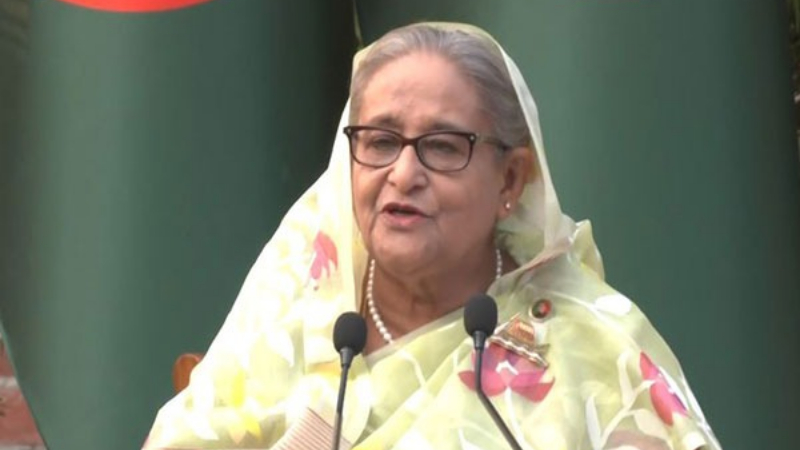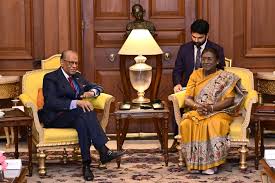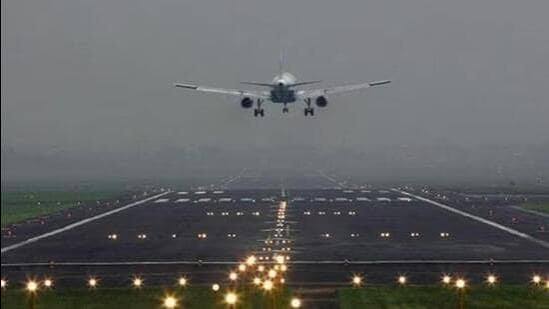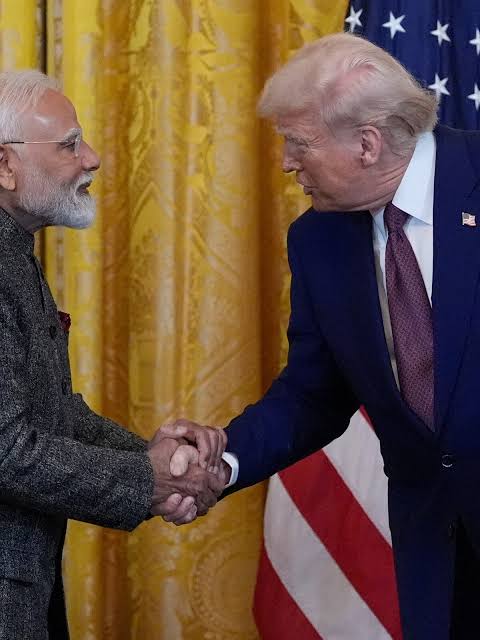Bangladeshi Prime Minister Sheikh Hasina, currently in India, issued a strong statement on November 29, condemning the killing of a lawyer and demanding the immediate release of Chinmoy Krishna Das, a detained Hindu activist.
The Arrest of Chinmoy Krishna Das
On Monday evening, Chinmoy Krishna Das Brahmachari was arrested on sedition charges. He is accused of inciting a protest that allegedly disrespected the Bangladeshi national flag. The protest led to clashes between his supporters and police, during which Saiful Islam, a lawyer and assistant public prosecutor, was fatally attacked. Thirty-three people have been arrested in connection with the murder.
Violence and Protests Erupt
Following the arrest and court denial of bail on Tuesday, a large crowd gathered outside the court, blocking police vehicles and raising slogans. The situation escalated into violence, leading to the murder of Saiful Islam.

India Expresses Concern
Before news of the lawyer’s death spread, India had already expressed concern over the arrest of Chinmoy Krishna Das, a former member of ISKCON and spokesperson for the Bangladesh United Sanatani Awakening Alliance, which has been advocating for the rights of Bangladesh’s Hindu minority.
Sheikh Hasina’s Statement
On Thursday, Hasina condemned the murder of Saiful Islam. She described the attackers as terrorists and demanded they be brought to justice. Her statement emphasized the need for unity against terrorism and stressed that citizens’ safety and security should be the government’s top priority.
Hasina also criticized the current government in Bangladesh for failing to manage essential goods prices and protect the lives of its people. She also expressed concern over the arrest of Chinmoy Krishna, calling for his immediate release, and labeling him a prominent leader of the Sanatan community.
Condemnation of Religious Violence
The Prime Minister highlighted ongoing attacks on religious minorities, pointing to incidents such as the burning of a Hindu temple in Chattogram and attacks on mosques, churches, and Ahmadiyya homes. She stressed the importance of ensuring religious freedom and security for all communities.
Attacks on Political Leaders
Sheikh Hasina’s statement also condemned ongoing violence against Awami League leaders, activists, and law enforcement. She criticized the government’s approach to harassment through arrests, lawsuits, and intimidation of opposition leaders.
ISKCON’s Response
In a separate development, ISKCON Bangladesh distanced itself from Chinmoy Krishna Das, stating he had been expelled from the organization in July due to disciplinary issues. Despite this, some political groups in Bangladesh called for a ban on ISKCON’s activities, a request that was not supported by the Bangladesh Nationalist Party.
Government Clarifies Position
Later, Syeda Rizwana Hasan, a government advisor, clarified that there had been no official discussion about banning ISKCON in Bangladesh. She stated that individual actions, like those of Chinmoy Krishna, should not be confused with the activities of the organization as a whole.
India’s Concern Over Religious Incidents
In response to the growing tensions, India’s Ministry of External Affairs also expressed concern about attacks on Hindu temples in Bangladesh. They urged the Bangladeshi government to ensure the safety and security of Hindus and other minorities, along with their places of worship.
This latest incident underscores the ongoing religious and political tensions in Bangladesh. With the death of a lawyer and the arrest of a Hindu activist, Sheikh Hasina’s statement highlights the deepening challenges surrounding religious freedom and minority rights in the country.



